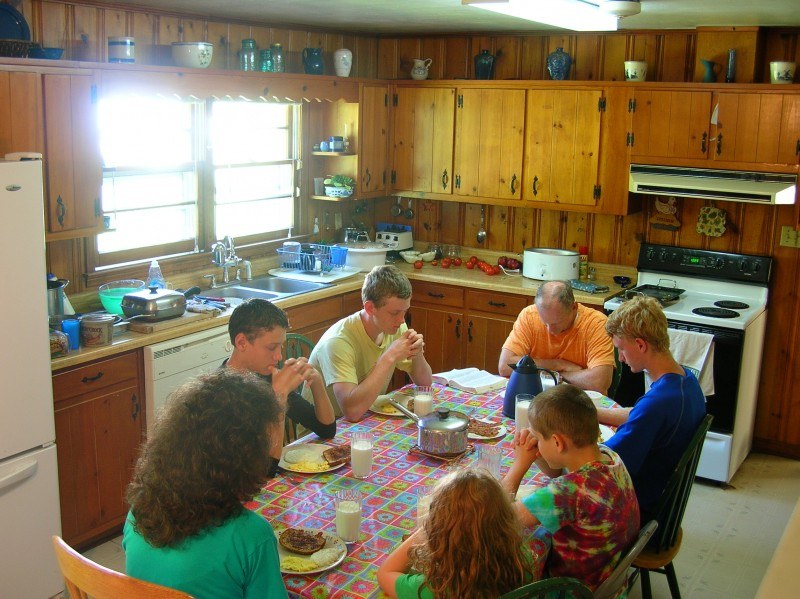You've heard the mantra: Do well in school so you can get a good job. Or perhaps it was, "Go to college so you can make more money." But if a large percentage of the 99% are any indication, people are being blindsided by the fact that such statements are not grounded in reality.
Why?
Why would a good education not automatically translate into employment?
I will offer three reasons here, but there are more:
- A failure to understand education
- A failure to understand business
- A failure to understand today and tomorrow

School ≠ Job
What follows is a broad, generalized overview from my Western perspective. This is in no way complete, well-documented, or researched. This is a rough sketch of my understanding of our current situation, and I welcome your input.
Education
Education begins as a family affair. Parents teach their children life skills and values. In certain parts of the world, parents also pass on the family trade. If this will not support their children, or if better opportunities are out there, kids are sent to serve as apprentices. This produces a specialized society where children develop skills alongside adults. But it also limits what kids have the opportunity to learn.
To give children even more opportunities, some societies started schools where young people could gain a broader set of skills--such as reading, writing, and arithmetic; grammar, logic, and rhetoric; history, policy, and governance. Such an education was initially only available to the wealthy--those who had time to apply such learning (though, historically, there have long been schools to promote religious thought or political ideals). Some groups decided that a broader education was of enough value that it should be available to all who could attend. Public schools were born, and those who could attend did so. Somehow, and this is far less clear to me, these optional classes became compulsory.
The history of how we got to modern education is fascinating and well-worth further study, but for now notice how far we've already separated the act of learning from work you do for an employer.
Business
In many ways, business exists to "redistribute the wealth." Someone creates a product or service that is of value to another, and that person exchanges what things of value they have for what is offered by the first person. Initially this is done by barter, but to make exchanges more versatile, currency is quite common. If a product or service proves valuable, more people want it. To keep up with the demand, the business owner hires help (or has children) to assist with the growing demands of operation.
This is the foundation for employment: Businesses take on help to create more value for more people. If you, as an employee, create at least as much value as you are paid, you stay unless someone more apt at creating value is found to replace you. This provides impetus to work hard and continue to expand your skills.
If you are not a valuable employee or no one needs your services, are you stuck? Only if you believe the above mantra about education. If you realize, instead, that business is about creating value, you can begin to look for ways to use your skills to create value for others. This is the foundation of entrepreneurship and marketing, subjects which are bankrupt in the modern classroom. Indeed, the very idea that you go to school so you can be hired by someone else automatically downplays job creation. And while you are told you are more valuable to an employer by having an education, we are never told how this is so.
Today and Tomorrow
We oddly believe that getting good grades in, say, "social studies" translates into employment. But this belief betrays that in our study of societies and history we have somehow missed the important facts of industry and improvement that got us here. Our modern education is important and wonderful, but it has little bearing on our jobs. I've heard that only a tiny fraction of us end up using our college major in our profession.
Sir Ken Robinson's Changing Education Paradigms talk expands on these ideas masterfully. Our educational model is built on concepts from another age. The jobs of today aren't really about sitting in a chair and fulfilling tasks given to you. If you think companies are waiting around for you to do some simple task, those in countries with a lower cost of living will be able to beat you at that every time. If you have an English or History degree and no one is looking for teachers, what else can you do with your skills? If you've taken time to learn how to build things in Flash, that skill will become ever more worthless as Flash is stripped from mobile devices. And if you're a company that sells books, what do you do about the ebook revolution?
Where do we go from here?
If I knew what would be valuable to people tomorrow, I'd be creating that today. If I knew how to help people and corporations find each other, I'd gladly share. And if I could clearly see a way out of the mess we're in, I'd happily divulge that too. But I think the first step is to understand where we are and why our current thinking is so far from reality.
Let's educate our children to seek ways to provide value to this world. That's the surest way I know to give them every opportunity to stay productive. What I love about Sonlight is that our homeschool curriculum is packed with biographies of men and women (as well as children) who have done just that.
Okay, I've just tossed out a few ideas rattling around in my head. What do you think?
~Luke Holzmann
Filmmaker, Writer, Empty Nester
P.S. If I were to make a prediction about tomorrow, it would be an even greater increase in passion projects (like my free film school). People who find something interesting to do will rally others around them to create these "products" (for example, the crazy success of VGHS). These will be free, or mostly free. For the next couple decades, individuals will continue to rely on "9-5 jobs" for their bread and butter while a few of us will continue to develop resources in our time off. Major brands will arise from these projects, and a few will dominate the digital landscape.






